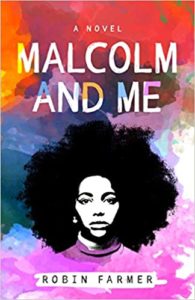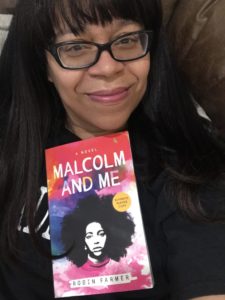“The Role of Empathy in Literature and Our Lives”
I was around 13 when I read To Kill A Mockingbird and discovered a quote in Chapter 3 that embedded itself into my brain.
“You never really understand a person until you consider things from his point of view, until you climb into his skin and walk around in it,” Atticus Finch tells his daughter Scout.
His advice for Scout to explore the heart and mind of another person initially fails to register with the 10-year-old. Soon after their conversation, Scout joins in a cruel taunting game aimed at neighbor Boo Radley, a mentally challenged and socially awkward man that the town considers a “monster” because few took the time to see things from his viewpoint.
A heartfelt connection
This Pulitzer-Prize winning novel — with themes that touch on good and evil, racism, social inequality, courage, and family life — electrified my heart and mind, and made me vow to write a book one day.
A voracious reader as a child, books not allowed me to travel the globe without leaving my home while experiencing the lives of people who differed from me. That’s the definition of “empathy.” Harper Lee’s only book, one I have read nearly a dozen times, seared itself in my psyche because 1) Atticus, a white lawyer respected by Black people, wanted to defend an innocent black man, 2) Scout’s stubbornness reminded me of myself, and 3) the initial fear I had of Boo evolved into protectiveness, and 4) The story felt emotionally true.
Over the years, To Kill A Mockingbird has generated valid controversy for its racial stereotypes. The adult I have become understands its shortcomings. The girl in me remembers the power of this story at a time when few books in my school touched on racial inequity or a had a character I so identified with, despite stark differences. Scout was a Southerner while I called Philly home. She lived with her father, I stayed with my Mom. Her tomboyish ways did not match my frilliness. Yet, I connected to her willful nature, sensitive soul, thoughtful questions and fierce love for her father — a father whose patience, earnestness and steady adoration of his children I longed for as a girl of divorced parents. As different as we were, I saw myself in Scout because I walked around in her skin.
Specific viewpoint, universal appeal
Knowing the emotional power of walking in someone else’s shoes allowed me to write the empathetic character of Roberta Forest, the 13-year-old protagonist in Malcolm and Me. The story kicks off with the teen doing the unthinkable: She fights her nun. Could there be a less likely person for readers to connect with?
And yet, that girl was me and I was not a monster. I wanted readers to understand the multi-layered Roberta, a reluctant teen rebel with the heart of a poet. That meant I had to develop a relatable character with shortcomings and strengths who draws readers in and makes them feel what she experiences.
Roberta is a new teen who is smart, sensitive, strong, sassy and a bit spoiled. Making her relatable meant presenting her in a realistic manner, warts and all. And so she lives on the pages as a moody, thoughtful, vulnerable but resilient teen with a sense of humor and fairness. I hope readers root for her. And are inspired by her to speak up, think critically, ask questions and defend the truth, especially now that alternative facts exist.
Bridging the divide
Recently, Bridget, who writes book reviews for Bridgetandthebooks.com, reviewed my debut novel. She is 11, the same age I was when I read the Autobiography of Malcolm X. On the surface, she couldn’t appear more different from Roberta. But Bridget connected to the story and recommended my book. What really made my heart flutter was her wondering why she hadn’t learned anything about Malcolm X. One of the goals in writing the book was to get readers, especially younger ones, to read the book that changed my life in so many ways. What I especially love is the importance of walking around in Malcolm’s skin and experiencing his heartaches, struggles, achievements and growth.
That Bridget recommends Malcolm and Me feels like I won an award! What better validation than for readers who are like and unlike Roberta to connect to her story.
Empathy empowers
Research shows that books can help readers develop empathy, which I argue we need more of. Take a look at this divided nation. Take a look at our divided nation and the lack of civility – and it’s not just among the adults. We all know too well about the dangerous bullying that occurs in schools and well as on social media.
Empathy won’t solve all of our problems, whether they are political or personal. But listening to each other is a start.
I encourage young readers to develop the bravery of Roberta. Sometimes she sweated behind her knees, but she found the courage to not only defend truth, but also think about the feelings of others, including a nun who humiliated her and a father who disappointed her. In both cases, Roberta learns to forgive. That would be impossible for her to do so without empathy.
Steps to Take
Roberta, like Scout, took some steps to walk around in the skin of someone else. As students, follow her lead with these seven actions. To help remember what to do, I wrote an acrostic that spells out how to develop more EMPATHY:
Explore your heart and mind
Meet people different from you in books and at school
Practice kindness
Ask thoughtful questions
Talk less, listen more
Help others and ask for help
Yield to creative endeavor such as writing and drawing to express feelings
As students, by working on your empathy, you improve your understanding of each other’s thoughts and feelings. Doing so plays a role in how you respond to one another during conflict. Find opportunities to build better relationships, which can help you find success in all parts of your lives.
Published November 17, 2020 by SparkPress
About the Book: Philly native Roberta Forest is a precocious rebel with the soul of a poet. The thirteen-year-old is young, gifted, black, and Catholic—although she’s uncertain about the Catholic part after she calls Thomas Jefferson a hypocrite for enslaving people and her nun responds with a racist insult. Their ensuing fight makes Roberta question God and the important adults in her life, all of whom seem to see truth as gray when Roberta believes it’s black or white.
An upcoming essay contest, writing poetry, and reading The Autobiography of Malcolm X all help Roberta cope with the various difficulties she’s experiencing in her life, including her parent’s troubled marriage. But when she’s told she’s ineligible to compete in the school’s essay contest, her explosive reaction to the news leads to a confrontation with her mother, who shares some family truths Roberta isn’t ready for.
Set against the backdrop of Watergate and the post-civil rights movement era, Malcolm and Me is a gritty yet graceful examination of the anguish teens experience when their growing awareness of themselves and the world around them unravels their sense of security—a coming-of-age tale of truth-telling, faith, family, forgiveness, and social activism.
About the Author: Robin Farmer is a national award–winning journalist and transplanted Philadelphian who currently calls the Richmond, VA, area home. At eight, she told her mother she would write for a living, and she is grateful that her younger self knew what she was talking about (many young folks do). Her other interests include screenwriting, poetry, movies, and traveling. She’s still hoping to write stories about young people for television and film. Robin earned her degree in journalism from Marquette University. She lives in Richmond, VA.
Thank you, Robin, for this timely and thought-provoking piece!


